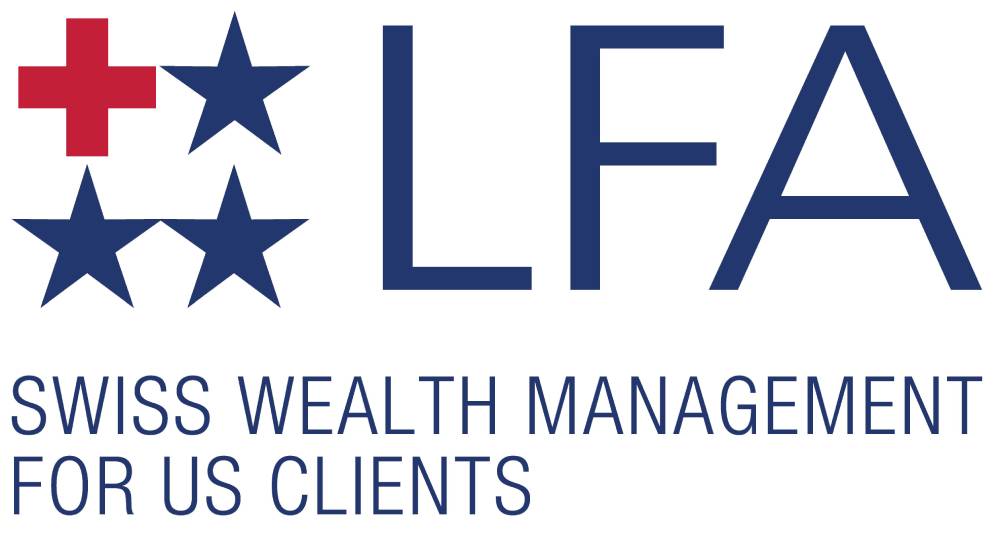If you’ve built significant wealth in the U.S., chances are most of your assets are tied to the strength of the dollar. For decades, the dollar has served as the world’s dominant reserve currency, driving global trade, commodity pricing, and anchoring central bank reserves.
But today’s shifting economic and political climate is raising an important question: Could that dominance potentially start to slip, much like the British pound did a century ago?
As a high-net-worth individual, this isn’t just an academic debate. If the dollar’s purchasing power were to erode, investing all of your wealth within U.S. borders could leave you overexposed to a significant currency risk.
That’s why many American investors and those from other nationalities are exploring international investment options, particularly wealth management services in Switzerland, as a means to diversify currency exposure and investments, while enhancing their global positioning and potentially securing increased long-term financial security.
The Historical Rise of the Dollar
Before World War I, the British pound sterling was the world’s primary currency. The U.S. economy was larger, but its financial infrastructure was fragmented, and American banks had little or no presence outside the United States.
That changed after the Federal Reserve Act of 1913 was enacted. With the creation of the Federal Reserve and the ability of U.S. banks to operate abroad, the dollar gained the support it needed to compete with the pound sterling.
By the 1920s, thanks to structural advantages such as the United States’ industrial dominance and growing post-World War I trade flows, the dollar had surpassed the pound sterling as the world’s leading currency for trade.
This shift demonstrated how a reserve currency status can evolve in response to shifts in economic power, institutional backing, and policy decisions.
The Dollar’s Vulnerabilities
While the dollar has reigned supreme since World War II, its dominance isn’t guaranteed forever. Consider today’s challenges:
- Sanctions and tariffs have pushed some nations to explore alternatives, including the Chinese Yuan (CNY).
- America’s rising national debt could weaken confidence in the currency over time. The anticipated debt on December 31, 2025, is projected to reach approximately $38 trillion. Interest payments on the debt are expected to total $1 trillion.
- As the Federal Reserve manages policy in a high-debt environment, inflation could further erode the purchasing power of a dollar.
These factors echo lessons from history: currency leadership is not permanent. Just as sterling gave way to the dollar, global capital could eventually flow elsewhere if conditions align. This is where a partnership with a Swiss wealth management firm may benefit your financial situation and help you diversify your currency holdings outside the U.S.
Why Switzerland Matters
If you’re considering how to diversify your wealth, Switzerland remains one of the most respected global financial hubs. The Swiss reputation for stability, privacy, and strong banking regulation has made it a haven for wealthy individuals and families during periods of uncertainty.
Wealth management in Switzerland can offer U.S. investors several benefits, such as:
- Currency diversification: Exposure to the Swiss franc, a historically strong and stable currency, can help offset risks associated with a volatile dollar.
- Swiss bank accounts for U.S. citizens: While subject to tax reporting requirements under FATCA, these accounts provide access to global investment opportunities with the protection of an alternative currency.
- Global investment access: Switzerland’s financial institutions connect investors to international markets and asset classes that may not be readily available in the U.S.
The Case for Diversification
If history teaches us anything, it’s that no currency is immune to sudden declines. Investors who tie their financial future exclusively to the U.S. dollar may face challenges if its global role erodes over time.
The following are some practical ways to address that risk:
- Hold assets in multiple currencies: Beyond the dollar, consider allocations in other major currencies, starting with the Swiss franc.
- Explore international equities and bonds: These provide exposure to companies and government policies outside the U.S..
- Invest in Switzerland: Known for its disciplined financial culture, Swiss-based investments can serve as a stabilizing force in a portfolio.
- Consider hard assets, such as gold and other commodities, which are often traded globally and help counterbalance the potential weakness of the dollar.
- Risk: Why take on this additional financial risk when it is easy to avoid?
Lessons from the Past
When the dollar briefly lost ground during the Great Depression, it served as a reminder that financial dominance relies on sound policy and global trust. The Federal Reserve’s missteps at the time accelerated the decline, only to see the dollar restored after World War II, when the U.S. emerged as the world’s economic leader.
For today’s investors, the takeaway is clear: currency dominance is cyclical, not permanent. The purchasing power of a dollar today may not look the same in the years ahead.
How LFA Can Help You Think Beyond Borders
At LFA, we recognize that as a U.S.-based investor, you may face unique challenges when considering international diversification. Regulations, tax compliance, and global market access can feel like a complex set of financial circumstances. However, if you want to protect your wealth against currency and inflation risks, developing a Swiss franc strategy for part of your wealth is crucial.
Our approach includes:
- Evaluating your exposure to the U.S. dollar and identifying potential vulnerabilities.
- Offering Swiss wealth management solutions that align with your broader financial plan (circumstances, risk tolerance, goals).
- Facilitating access to Swiss bank accounts for U.S. citizens in compliance with U.S. reporting requirements.
- Building portfolios that integrate U.S. and Swiss investments, balancing growth opportunities with long-term stability.
At LFA, protecting the purchasing power of a dollar-denominated portfolio means thinking globally. The dollar may remain the world’s reserve currency for years to come, but wise investors don’t leave their financial future tied to just one outcome.
LFA is a Registered Investment Advisor in the U.S. and is subject to the scrutiny and regulations of the SEC (Securities and Exchange Commission).
Want to learn more about Swiss-based investment services for U.S. citizens? Schedule an introductory meeting with us today.


